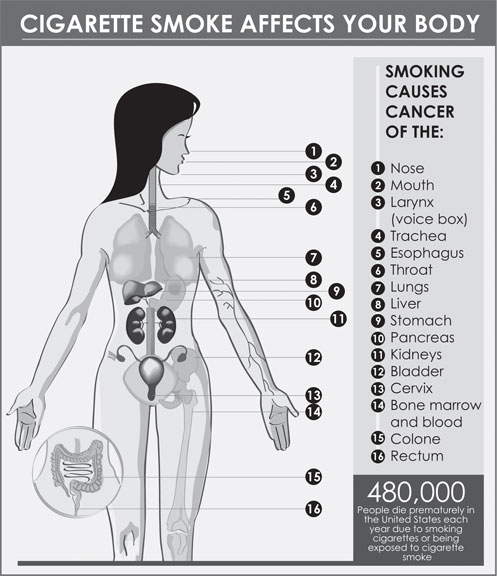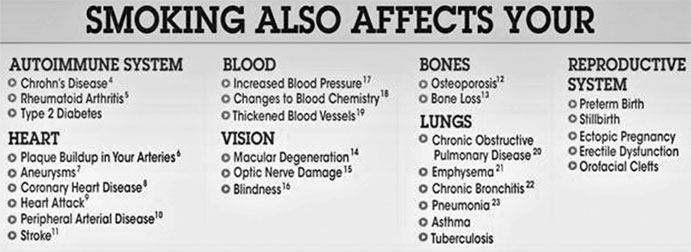Tobacco use, a deadly risk for Lankan youth
One of the key objectives of the government is to
prevent schoolchildren and youth taking to smoking and want to make a
child born in the 21st Century free of tobacco and alcohol:
by Carol Aloysius
Cancer, currently spreading its deadly tentacles to every part of the
world claiming more lives than most diseases and world wars put
together, is today, the second highest cause for deaths in Sri Lanka.
The biggest culprit,, experts say, is tobacco smoking. Tobacco is said
to contain over 4,000 chemicals including 43 known cancer causing
compounds and 400 other toxins. In addition, it contains Nicotine which
is additive. The combination is so deadly that it can impact severely on
non smokers ( passive smokers) those exposed to its toxic fumes. A
dangerous trend in certain countries is smokeless tobacco which health
officials say is likely to be already spreading in Sri Lanka although
there is no official data on this.
 Another contributory cause for this surge in cancer patients in Sri
Lanka, is betel chewing. Another contributory cause for this surge in cancer patients in Sri
Lanka, is betel chewing.
The deadly health impacts of both tobacco smoking and betel chewing
were unveiled to the media at the Health Education Bureau, Wednesday,
with several health officials including Director General Health Services
Dr P.G. Mahipala , Secretary, Ministry of Health , Nutrition &
Indigenous Medicine Mr. Anura Jayawickrama, calling for a ban on tobacco
smoking and urging young people, especially, to refrain from a habit
that can kill. Presentations by the National Authority on Tobacco &
Alcohol (NATA) Chairman, Dr Palitha Abeykoon, and Consultant Community
Dentistry, Institute of Oral Health, Maharagama, Dr Hemantha Amarasinghe
were also thought provoking.
In interviews with two experts in the field, gave the Sunday Observer
further insight into the dangers of smokeless tobacco , an emerging
problem that cancer specialists are currently facing, and what
interventions had been put in place to minimize smoking by the National
Authority on Tobacco & alcohol ( NATA.)
Excerpts…
Consultant in Community Dentistry, Institute of Oral Health,
Maharagama, Dr Hemantha Amarasinghe
Q: Cancer is on a sharp rise and is said to be the second most
common cause for deaths in Sri Lanka after Ischaemic disease. As a
specialist in the field what would you say are some of the reasons for
this?
Increased tobacco consumption in the form of smoking and smokeless
formChanges in the environment: environmental pollution.
Changes in lifestyle: habits, dietary practices
Increased elderly population
Increased detection
Q: You mentioned at a media seminar this week that smokeless
tobacco is now a serious potential health hazard in Sri Lanka. Could you
explain what smokeless tobacco means.
A. Smokeless tobacco includes a large variety of commercial or
non-commercially available products and mixtures that contain tobacco as
the principal constituent and are used orally, nasally, through the skin
or by any other means.
Q: How is it ingested ? You mentioned orally, nasally and
through the skin. Could you explain in detail how this enters the body?
A. These uses include chewing, snuffing, dissolvable tobacco:
gum or toffee, skin patches, topical tobacco paste and dentifrices.
Q: Who are most at risk of smokeless tobacco? What is the most
vulnerable age group?
A. Adolescents, especially, bus drivers, three wheeler
drivers, garment workers, masons, carpenters, labourers, and a small
percentage of schoolchildren, less than 5%
Q. It has been found that an increasing number of
schoolchildren and adolescents are becoming addicted to tobacco smoking.
What happens if these children start early and continue to smoke for the
rest of their lives?
A. Smoking is the biggest killer, their life is in danger.
Q: Any studies done on this recently?
A. Global Youth Tobacco Survey ( GYTS study done in 2015, 2.5%
of the schoolchildren use Smokeless Tobacco ( ST)
Q: What are the symptoms of 1) oral 2) nasal 3) skin cancer?
A. Oral cancer exist as a swelling, ulcer of the mouth
Q. What are the facilities available for early detection and
treatment in Sri Lanka?
 A. Early detection of oral cancer facilities are available in
all government dental clinics in the country. A. Early detection of oral cancer facilities are available in
all government dental clinics in the country.
Q: If detected early, will it be possible to cure, delay or
reverse the disease?
A. Yes
Q: What are the current interventions in place to prevent this
habit?
A. Education programs for schoolchildren, Estate sector
programs for early detection, new betel training program, Health sector
health professional training programs, social marketing campaigns
launched to create awareness on oral cancer from 2012.
Q: Your message to the public?
A.. Smokeless tobacco commercial preparations such as Barbul,
Beeda, Mawa and Hans are rather dangerous. Therefore, please ensure your
child refrains from such substances.
.........................................................
NATA Chairman Dr Palitha Abeykoon gave us insights on the
interventions the country’s premier institution against tobacco ( and
alcohol ) had introduced.
Q: Tell us briefly what are the main strategeies you have put
in place.
A. The following are our main strategies;
1.Accelerate full implementation of FCTC
2. Implement pictorial warning( 80%)
3. Prohibit illicit trade of tobacco products
4. Ban all forms of advertising tobacco products
5. Ban points of sales display
6. Ban sponsoring community activities promoting such products
7. Conduct trade seminars to raise awareness on dangers of tobacco use.
Q: Any plans for the future?
A. Sri Lanka now has 80% pictorial health warnings and we are
planning to move towards Plain Packaging which has been introduced in
about 10 countries now. It will make cigarettes less attractive,
particularly, to the youth.
In fact, one of the key objectives of the government is to prevent
schoolchildren and youth taking to smoking and aim to make a child born
in the 21st Century free of tobacco and alcohol
Q: How do you plan to prevent illicit sale of cigarettes?
A. Sri Lanka has ratified the illicit tobacco protocol, being
the first country in the Region to do so. It will help to track the
movement of illicit smuggled tobacco into the country and from the
country.
Q: What about advertisements on cigarettes which still persist
in the media?
A. All forms of advertising have been banned. But there are
many instances where it is being violated. NATA and the Health Ministry,
along with the Police and the Excise Dept are now more vigilant than
before to prosecute such violations. We are also trying to prevent
indirect promotion. The tobacco company is using subtle ways of
promoting tobacco using what are called CSR activities and these are a
total violation of the NATA Act. Instructions have been sent to all
government departments not to solicit any support from the Tobacco
Company for any CSR work.
Q: Schoolchildren are most at risk since first timers taking
the puff can become hooked on to this deadly habit. Your comments?
A. Youth and schoolchildren will be treated as a special
category to be addressed for health promotion and a whole set of new
strategies will be adopted for this purpose.
They will include knowledge and attitude development, leadership
activities, reduction of the glamour and attractiveness of cigarettes
and smoking, and use of peer education and peer influence.
Q. Plans for the future ?
Increase taxes on tobacco:
Already, a paper has been presented to the President and a cabinet
paper prepared to this effect. Further, VAT will be added to tobacco and
alcohol. A new taxation formula has been given to the President who has
requested the Finance and Health Ministries to implement it. This
formula corrects the anomalies in the existing taxation framework by
making the cigarettes more expensive in keeping with the increase in the
per capita income and the depreciation of the rupee. In fact, a
cigarette is today more affordable than in 2000.
Tightening the laws and the governance: New amendments are being
proposed to the NATA Act to define the closed spaces more strictly, give
wider powers of enforcement to the authorized officers, increase the
penalties and make some offences cognizable offences. The amendments
also define the open and closed spaces more strictly. Thus the clean air
laws will be made tighter.
Q: The goal is to make Sri Lanka tobacco free by 2020. Is this
possible?
A. If Sri Lanka is to move towards a tobacco free society we
will have to get many of the current smokers to give up smoking, and
hence, the need for expanded and more effective cessation services
around the country. We are training counsellors and supporting the
psychiatrists in the country to help this.We are also hoping to
eliminate tobacco cultivation by 2020 or at least reduce it to a
minimum.
Discussions are ongoing with the furnace owners association to reduce
the land under tobacco by 10% each year. Need to find alternative
economic means to these farmers.
This is a Presidential initiative and the Agricultural Dept has been
asked to find alternate means of doing this. |

